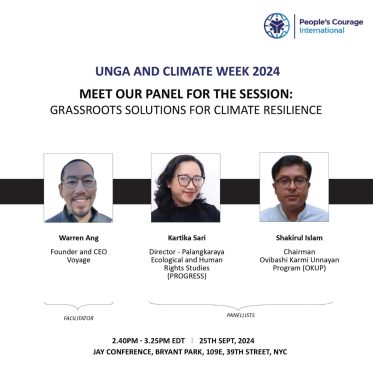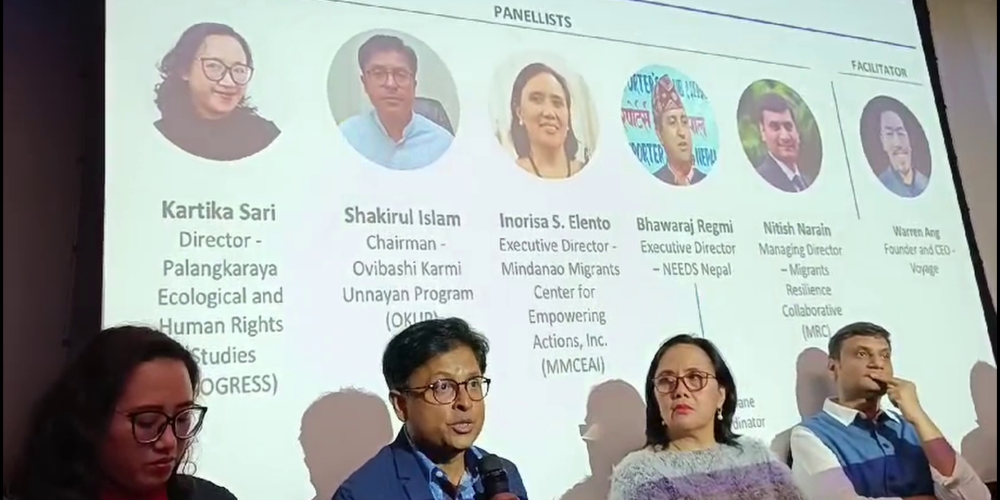New York, NY – OKUP (Ovibashi Karmi Unnayan Program) participated in a significant panel discussion at the UN General Assembly (UNGA) and Climate Week 2024, hosted by People’s Courage International. The event, titled “Grassroots Solutions for Climate Resilience” featured civil society leaders from Nepal, India, Bangladesh, Indonesia, and the Philippines.

Shakirul Islam, Chairperson of OKUP, highlighted the deep connection between climate change and migration, particularly in flood-affected regions of Bangladesh. He shared insights from OKUP’s substantial research conducted in flood-affected areas of Bangladesh and how this research has informed global initiatives like the Loss and Damage Fund announced during COP27.
He emphasized that before COP27, there was no official recognition of the connection between climate change, migration, displacement, and relocation, particularly in UNFCCC processes. OKUP, as a grassroots migrant organization, has been exploring these links since 2010, and its research has demonstrated that climate change often forces people into unsafe migration, leading to exploitation and human trafficking.
In collaboration with Anti-Slavery International (ASI), OKUP submitted a joint report during Bangladesh’s fourth Universal Periodic Review (UPR) cycle, showing that many migrants, due to inadequate protective measures, are vulnerable to human trafficking and forced labor.
In 2023, OKUP presented a video statement at a session of the Human Rights Council in Geneva, while continuing to lobby various state parties to address these critical issues. “We are grateful to the Government of Chile for forwarding one of our recommendations to the Government of Bangladesh during the 53ʳᵈ Human Rights Commission Session in Geneva,” Shakirul stated. The recommendation focused on integrating meaningful measures to prevent trafficking and forced labor into climate adaptation and mitigation plans, including the national action plan.
The Government of Bangladesh has formally accepted this recommendation, opening new opportunities for further advocacy on climate migration and human rights protection.However, he also warned of challenges, such as the misconception that migration is always voluntary. Many people are forced to migrate after climate events due to inadequate long-term support, leading them into debt cycles. To address this, OKUP conducted research before COP28 and published a report titled “Migration: Not a Choice, but a Compulsion in the Context of Climate Change.”
Through partnerships with international networks like the Climate Migration Displacement Network (CMDP), OKUP continues to bring grassroots experiences to the global stage.
“It is crucial to recognize the link between climate change, migration, and human rights. Ignoring the protection of migrant rights will push them into even greater vulnerabilities”
Shakirul Islam, OKUP Chairperson
As OKUP continues its advocacy, the organization calls for a rights-based approach to migration, ensuring that migrants have the right to stay in their communities with adequate protections or migrate with a safe pathway and adequate support.


